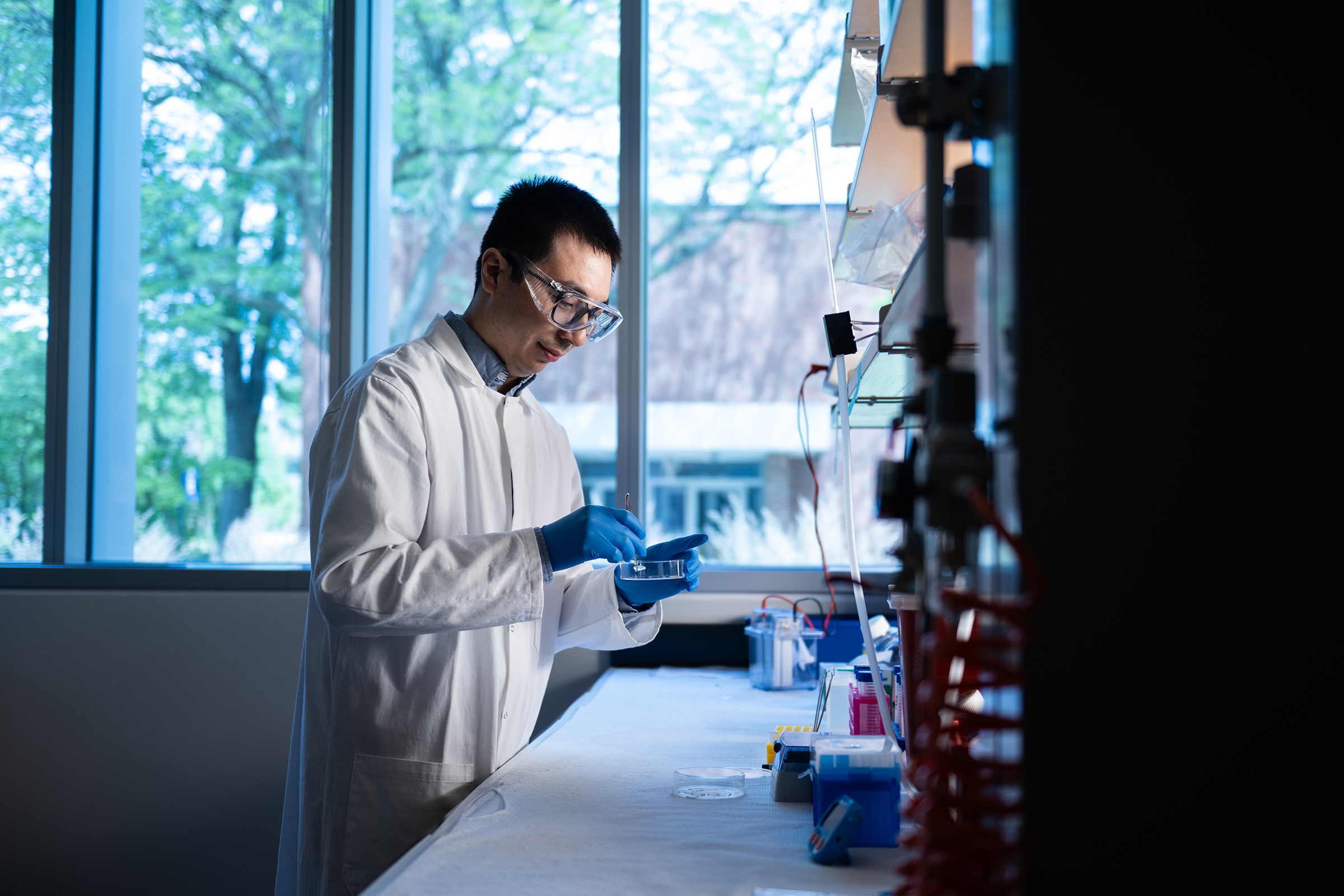
Breakthrough cancer research

Biological Sciences Assistant Professor Jie Fan works in his UM-Dearborn lab to research how cancer spread occurs in an effort to stop cancer cells from going beyond their original location. Keeping the cancer from spreading, or metastasizing, is linked to higher survival rates. Studying how tumor cells interact with the cells that line blood vessels, Fan made a discovery that he’s recently shared with the medical research community. Fan noticed that the once-tight vessels become leaky after direct physical contact with tumor cells. Looking closer, he noticed that the healthy blood vessel cells, called endothelial cells, have chirality, which means they are mirror images of one another. This allows them to lock tightly together in a clockwise direction. But when tumor cells are introduced, the blood vessel’s cells start connecting in a random pattern, causing leaks that give cancer cells a way to travel to other locations through the bloodstream. Fan says regulating this cell interaction holds promise for better controlling cancer metastasis, and he plans to work further on developing therapeutics in this area.


 Associate Professor Danielle DeFauw is taking some of the guesswork out of teaching children to write. Her recent book, “Engaging Teachers, Students, and Families in K-6 Writing Instruction,” presents insights from six years of her writing course for preservice teachers. It’s packed with interesting methods, like modeling, where teachers engage in writing right alongside their students. Next up, DeFauw and a colleague are launching a study where they’ll follow 30-plus educators, literacy coaches and curriculum developers as they use evaluation rubrics from the National Writing Project. “We want to ensure that teachers have effective ways to learn the pedagogical content knowledge of writing, what to teach and how to teach it as early as possible so they can be successful as writing teachers,” DeFauw says.
Associate Professor Danielle DeFauw is taking some of the guesswork out of teaching children to write. Her recent book, “Engaging Teachers, Students, and Families in K-6 Writing Instruction,” presents insights from six years of her writing course for preservice teachers. It’s packed with interesting methods, like modeling, where teachers engage in writing right alongside their students. Next up, DeFauw and a colleague are launching a study where they’ll follow 30-plus educators, literacy coaches and curriculum developers as they use evaluation rubrics from the National Writing Project. “We want to ensure that teachers have effective ways to learn the pedagogical content knowledge of writing, what to teach and how to teach it as early as possible so they can be successful as writing teachers,” DeFauw says. 


